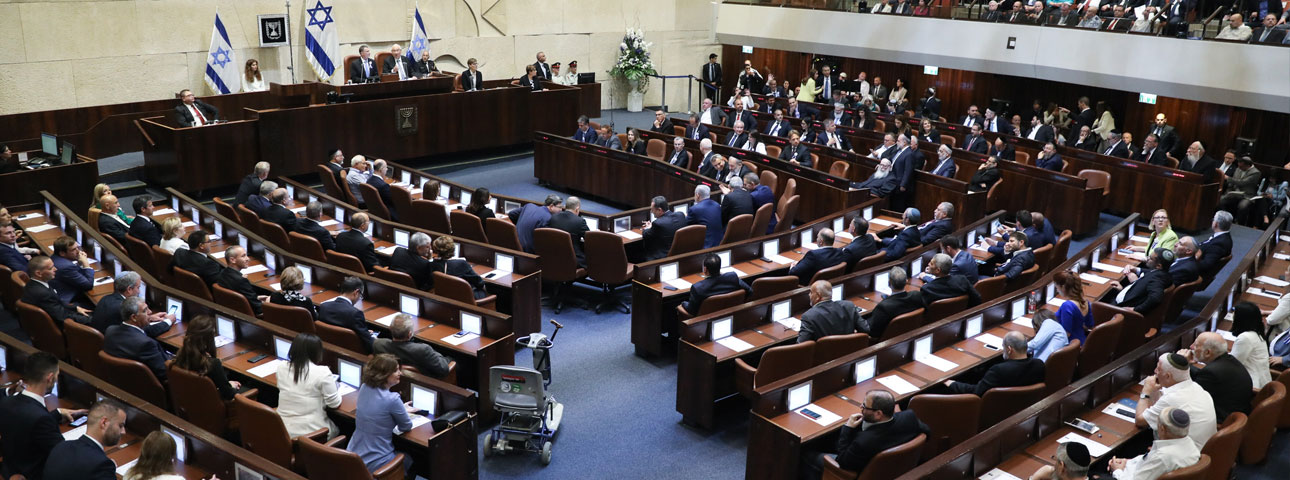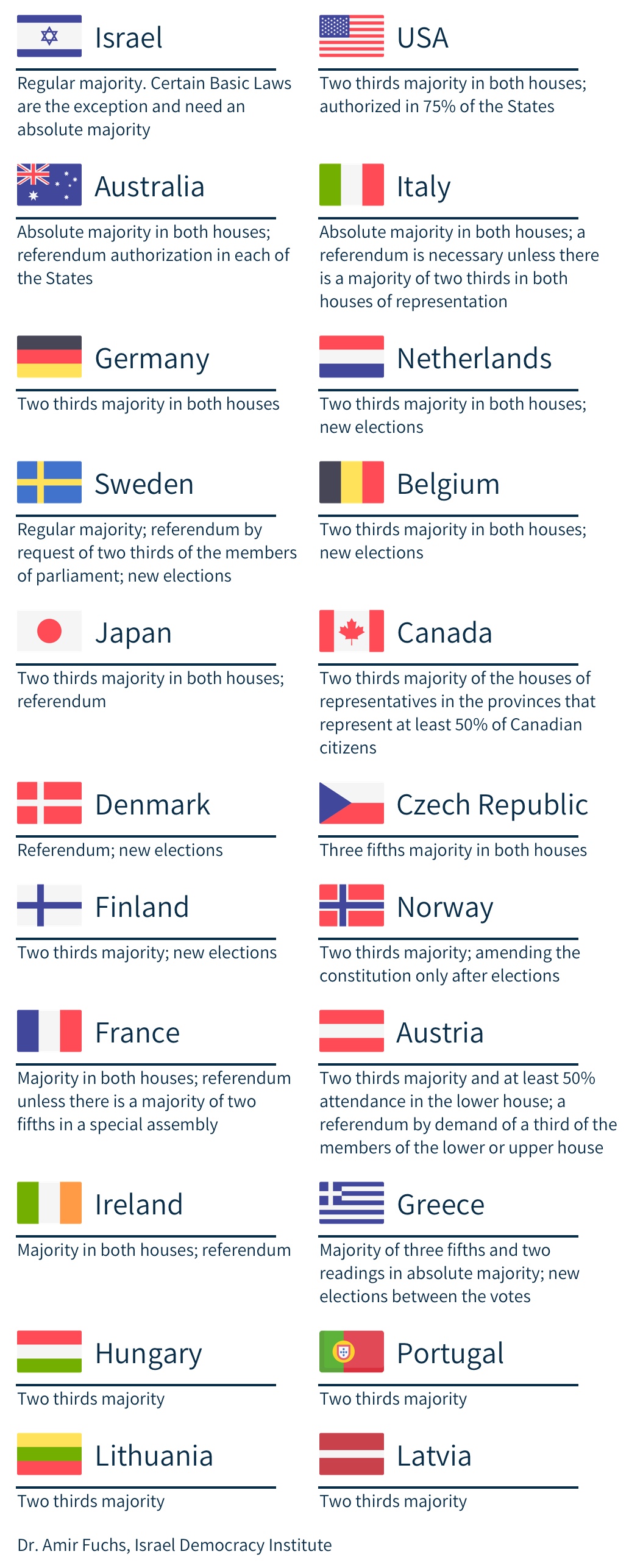The Weakest Constitution in the World
The Override Clause would not alter the balance between the branches of government – it would shift the balance of power between the government and the governed

Flash 90
The supporters of the proposed Israeli Supreme Court Override Clause frame it as a means for reestablishing the balance of power between the Knesset and the Court, in the face of the steady erosion of the Knesset’s authority by the Court. In fact, the implications of the clause are more dramatic and far-reaching. It would allow the Knesset to enact legislation that violates the fundamental rights of all residents of Israel as enshrined in the country’s Basic Laws. More than altering the balance of power between the branches of government, it would shift the balance of power between the government and the governed.
Israelis already enjoy fewer constitutional protections than the residents of almost any other democratic country in the world, most of which have comprehensive constitutions that guarantee individual freedoms. First, although there are limits on the Knesset’s power to pass laws that infringe on the rights of citizens, the Basic Laws, which serve in Israel as a substitute for a constitution, explicitly protect only a handful of basic rights—notably the right to life, liberty, property, privacy, and human dignity—while ignoring other fundamental rights enshrined in many constitutions around the world, such as the right to equality, freedom of expression, freedom of religion and conscience, the right to a fair trial and education, and cultural rights. The constitutional status of some of these rights has been recognized by the Supreme Court in its interpretation of the existing Basic Laws, but such recognition provides only partial protection, whose exact scope is a matter of debate even among the justices on the bench.
Second, the most important Basic Law – Human Dignity and Liberty – does not allow the court to strike down laws that infringe on the fundamental rights it includes, if they were enacted before 1992. For example, there is no possibility to rely on the Basic Law on Human Dignity and Liberty to challenge the law that mandates that all marriage and divorce among Jews in Israel take place exclusively according to Torah law (that law was passed in 1953). As a result, Israel is the only country in the world in which there is no civil marriage.
Third, it is very easy to amend Israel’s Basic Laws. It requires only a simple majority in the Knesset, and indeed fourteen such amendments were passed by the last Knesset alone (2015-2019). This stands in stark contrast to the norm in other countries, where constitutional amendments require a supermajority, a referendum, or another complex political process. This difference highlights just how fragile already is the protection of our fundamental rights.
In these circumstances, the addition of the Override Clause, which would provide the ruling coalition with yet another legal avenue for restricting the fundamental rights of Israelis, can be compared to the theft of the poor man’s lamb. Adding such a clause to our law books, with the near certainty that it would be invoked in controversial matters such as military conscription of yeshiva students, would make Israel an extreme anomaly in the democratic world.
The proponents of the clause sometimes cite three other democratic countries with various constitutional arrangements that allow for legislation that violates fundamental rights: Canada, the UK, and New Zealand. It must be recalled, however, that each of these countries has adopted in legislation a bill of rights that is much more detailed than ours; that in Canada the federal parliament has never made use of the override clause; and that in Britain and New Zealand, there is an expectation legal steps would be taken following declarative court rulings defining an existing statute as unconstitutional.
Even today, there are few other democratic country that offers its residents a limited scope of constitutional protection as does Israel. And there are very few countries in which constitutional protection is so frail. Dealing an additional blow to constitutional law in Israel by means of the Override Clause, would turn our Basic Laws into the front-runner for the dubious title of “the weakest constitutional document in the world”.
The article was published in Times of Israel.


